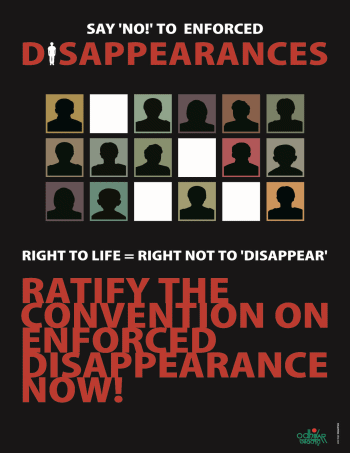25 November is the International day for Elimination of Violence Against Women. On 17 November, 1999 the General Assembly of United Nations decided that the 25th of November would be the International day for Elimination of Violence Against Women. Fourteen years have been passed since then, but women in Bangladesh still face high levels of violence; and women belonging to the poorer and more deprived sections of society are more prone to various kinds of violence. Major types of violence against women in Bangladesh include dowry-related violence, rape, acid attacks, domestic violence and various forms of sexual harassment. According to Odhikar’s statistics, between January 01 and October 31, 2013, 134 women have been killed, 249 women were physically abused and 16 women have committed suicide due to dowry related violence. During this time, 38 women were victimized by acid violence and 319 women and 419 children were raped. Beside this, between January and October 2013, 303 girls have been victims of sexual harassment. However, Odhikar believes the actual statistics of violence may be higher, as many incidents – especially in the case of rape and sexual harassment – go unreported. Patriarchal mentality and social inequality are some root causes of violence against women in Bangladesh. In many cases, the accused are not being punished because of improper implementation of law, a weak criminal justice system, corruption in police and administration and the influence of political persons. As a result, violence against women continues to rise. If justice is not ensured by bringing perpetrators to book, it encourages potential criminals.
There is no victim and witness protection law in Bangladesh. Thus it is even more difficult for vulnerable women victims and witnesses to such violence to freely give statements and evidence; and seek protection from retaliation and intimidation from perpetrators.
Odhikar’s recommendations to stop violence against women:
In order to lessen the risk of violence against women and ultimately stop such crime the following suggestions are made:
- The government must ensure proper implementation of the existing laws to stop violence against women;
- Rape cases should not be withdrawn under political consideration;
- Judiciary should act independently and cases of violation against women should be brought under speedy trial procedures to ensure justice;
- Print and electronic media, including textbooks must take long-term awareness activities at all levels.
- The government should enact a victim and witness protection law to ensure that victims and witnesses of acts of violence are able to give statements and evidence under protection and with no fear of further threats.
Statement-EVAW-2013 (full text in English)
Statement-EVAW-2013 (full text in Bangla)




